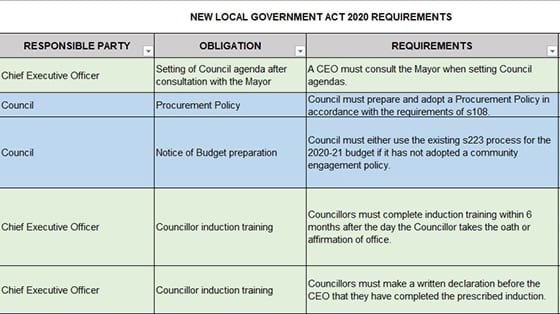
All Victorian councils must meet these regular statutory obligations and many of these obligations have deadlines – a legislated date the task must be completed by. Just think of all the new compliance requirements and deadlines required by the new Local Government Act 2020!
Many councils use calendars, often referred to as governance schedules, to ensure key deadlines are met. These calendars can be spreadsheets or software programs.
A governance schedule is a systematic way to help a council keep on top of their statutory obligations and ensure they meet the dates set out for these tasks. It also helps minimise the risk and reputational damage by non-compliance with statutory and audit requirements.
A good governance schedule will set out the task, when it needs to be done by and who is responsible for delivering it. It should able to be viewed by governance staff, the CEO with the corporate management team and Councillors and alert staff about what tasks are due and when they need to be completed.
Councils use a range of tools to record their governance schedules, from spreadsheets to organisation-wide calendars. But the effect is the same; a good governance schedule will enforce accountability, transparency and ensure compliance with the Local Government Act.
The schedule can include a range of obligations, including a register of interest returns, a register of delegations and a register of delegation to special committees.
Councils can also include the regular updating of council policies on their governance schedule. This will ensure the task is allocated and has a deadline attached to ensure policies are always current.
Regularly reviewing policies approximately every two years will ensure policies are compliance, realistic and relevant. A number of our recent investigations have found that some councils have failed to regularly review policies creating gaps in their governance arrangements.
A governance schedule is good management and good practice ensuring confidence and trust in council administration by councillors, the CEO, senior management and the community.
Find more information about governance schedules and examples of best practice.
Updated

